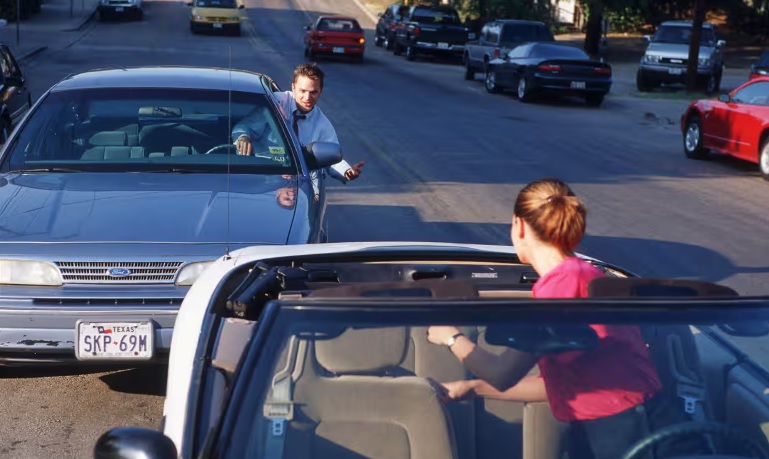
The United States, with its enormous highways, sprawling suburbs and neglected public transport systems, is one of the most car-dependent countries in the world. But this arrangement of obligatory driving is making many Americans actively unhappy, new research has found.
The car is firmly entrenched as the default, and often only, mode of transport for the vast majority of Americans, with more than nine in 10 households having at least one vehicle and 87% of people using their cars daily. Last year, a record 290m vehicles were operated on US streets and highways.
However, this extreme car dependence is affecting Americans’ quality of life, with a new study finding there is a tipping point at which more driving leads to deeper unhappiness. It found that while having a car is better than not for overall life satisfaction, having to drive for more than 50% of the time for out-of-home activities is linked to a decrease in life satisfaction.
“Car dependency has a threshold effect – using a car just sometimes increases life satisfaction but if you have to drive much more than this people start reporting lower levels of happiness,” said Rababe Saadaoui, an urban planning expert at Arizona State University and lead author of the study. “Extreme car dependence comes at a cost, to the point that the downsides outweigh the benefits.”
The new research, conducted via a survey of a representative group of people across the US, analyzed people’s responses to questions about driving habits and life satisfaction and sought to find the link between the two via a statistical model that factored in other variables of general contentment, such as income, family situation, race and disability.
The results were “surprising”, Saadaoui said, and could be the result of a number of negative impacts of driving, such as the stress of continually navigating roads and traffic, the loss of physical activity from not walking anywhere, a reduced engagement with other people and the growing financial burden of owning and maintaining a vehicle.